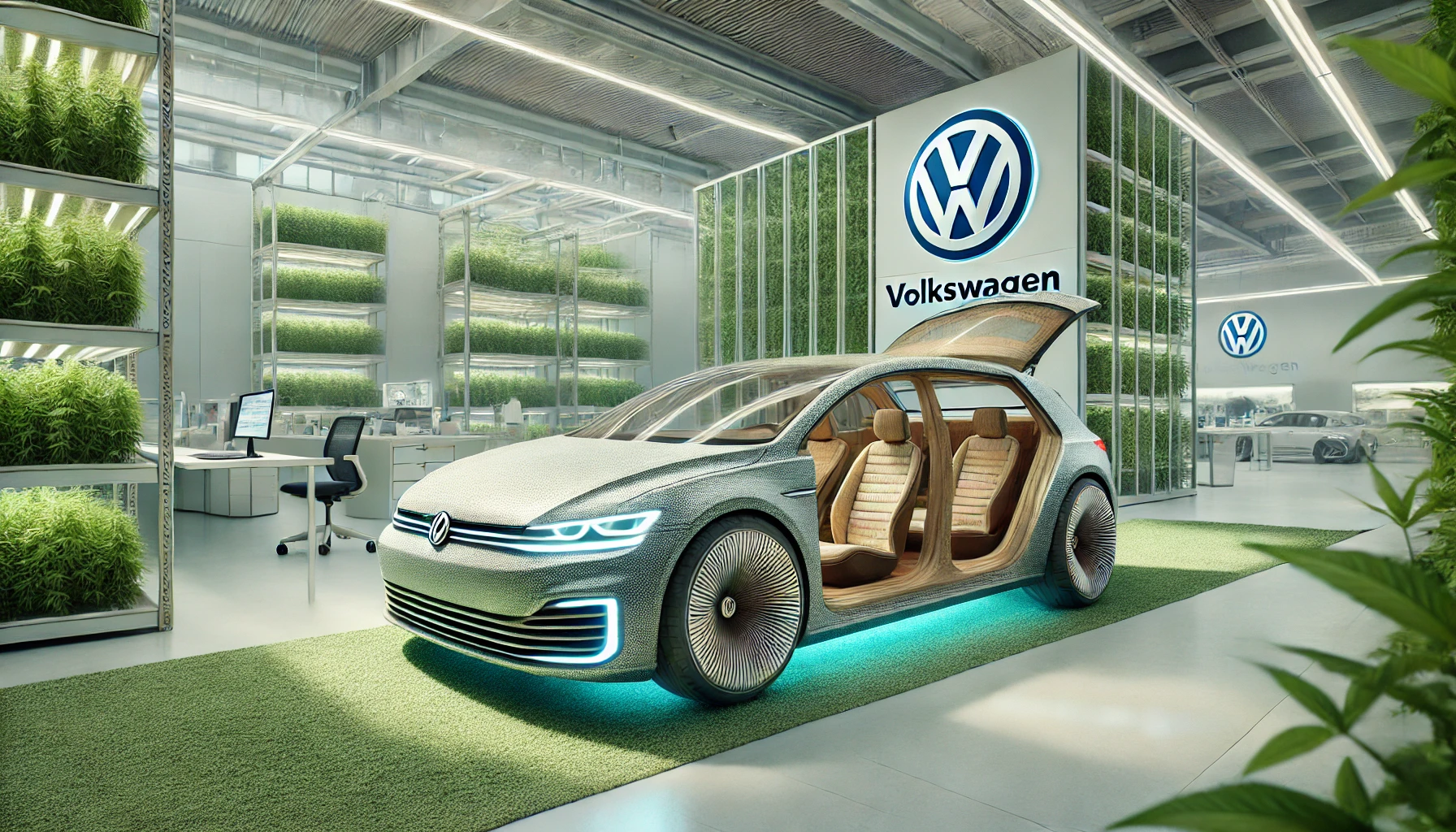Introduction: Why is hemp interesting for Volkswagen?
Volkswagen, a leading car manufacturer, is researching innovative materials, including hemp. This plant is not only versatile, but also offers ecological benefits. In this article, you will find out why hemp is so attractive for the automotive industry, what advantages it offers and how Volkswagen could use it.
What makes hemp a sustainable material?
Hemp is one of the most sustainable plants in the world. Its properties make it ideal for use in the automotive industry:
- Fast growth: hemp grows in just a few months and requires little water.
- CO₂ absorption: Hemp absorbs large quantities of CO₂ during its growth, which reduces the ecological footprint.
- Versatile use: The fibers can be used in composite materials, insulating materials and even plastics.
These properties make hemp a promising material for sustainable innovations.

Why is Volkswagen specifically interested in hemp?
1. lighter vehicle parts
Hemp is increasingly being used in the automotive industry for composites that are lighter than conventional materials. Lightweight vehicles consume less fuel, which reduces both costs and emissions.
2. environmental friendliness
Volkswagen is pursuing ambitious targets to reduce CO₂ emissions. The use of hemp can significantly reduce the ecological footprint of vehicle production.
3. cost savings
Hemp is a cost-effective alternative to conventional materials as it grows quickly and is available in large quantities.
How could hemp be used in vehicles?
1. interior components
- Door panels and dashboards could be made from hemp composites.
- These materials are robust and lightweight at the same time.
2. insulation materials
- Hemp is ideal for soundproofing and insulation in vehicles.
3. bio-based plastics
- Hemp oil can be used to produce bio-based plastics that replace conventional petroleum-based variants.
What advantages does hemp offer over traditional materials?
- Sustainability: hemp is biodegradable and conserves natural resources.
- Costs: Lower production costs compared to conventional materials.
- Performance: Hemp fibers are strong and durable, making them ideal for industrial applications.
What are the challenges of integrating hemp?
- Regulations: In some countries, the cultivation of hemp is still strictly regulated.
- Production: The scalability of hemp production must be further optimized in order to meet demand.
Conclusion
Volkswagen could make an important contribution to sustainability with hemp materials. From lightweight vehicle parts to bio-based plastics – the possible applications are diverse. By researching and using hemp, Volkswagen is paving the way for more environmentally friendly automobile production.
1 Why is hemp a sustainable material?
Hemp grows quickly, requires little water and absorbs CO₂, making it an environmentally friendly alternative.
2 How could Volkswagen use hemp in vehicles?
Hemp could be used for door panels, dashboards, sound insulation and bio-based plastics.
3 What are the advantages of hemp over traditional materials?
Hemp is lighter, cheaper and biodegradable, which means it has less impact on the environment.
Source: https://internationalcbc.com/volkswagen-to-research-and-develop-hemp-materials/?utm_source=ICBC+Combined+List+Newsletter+and+Outreach&utm_campaign=10e3c4325d-EMAIL_CAMPAIGN_2024_09_03_12_40&utm_medium=email&utm_term=0_-10e3c4325d-%5BLIST_EMAIL_ID%5D